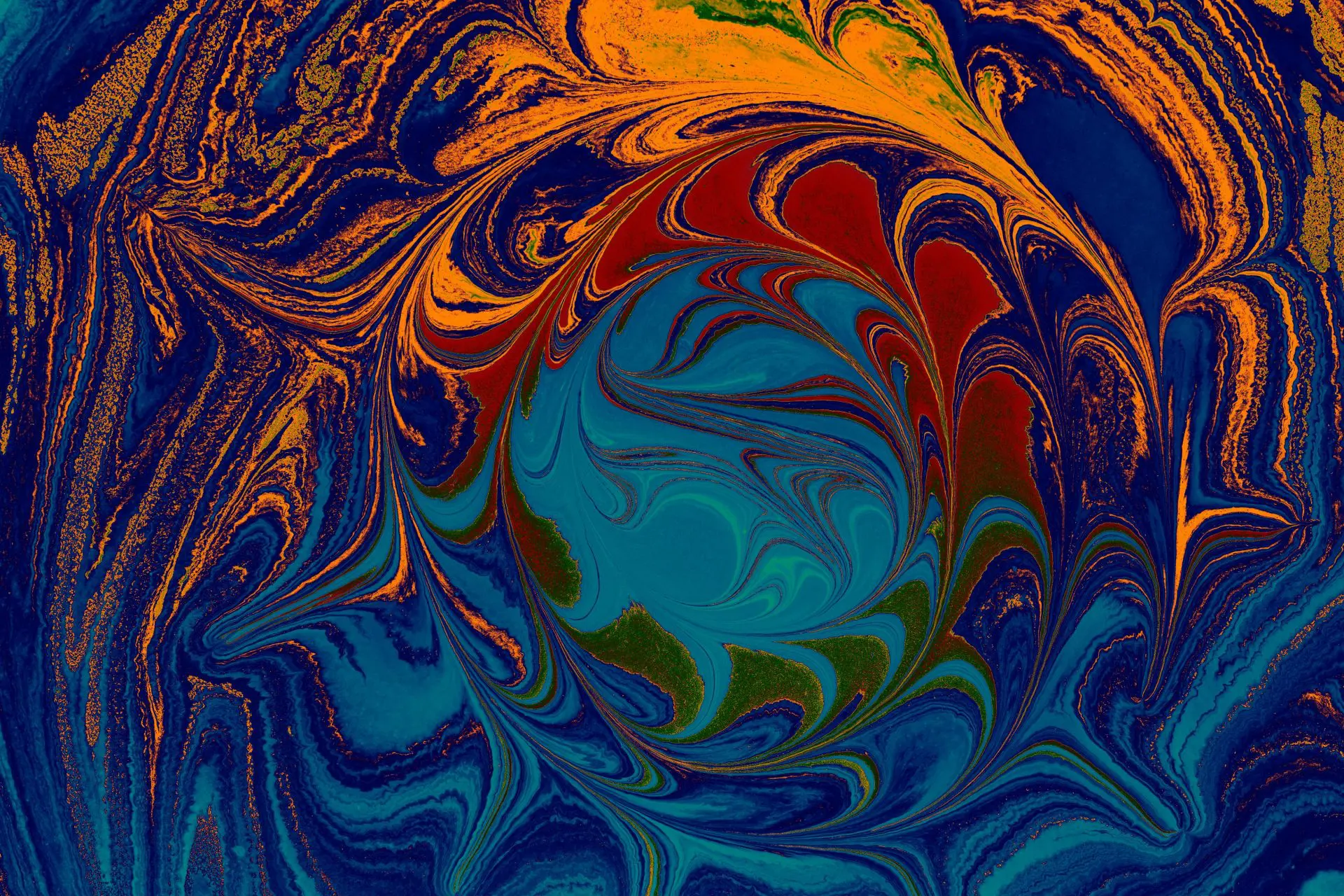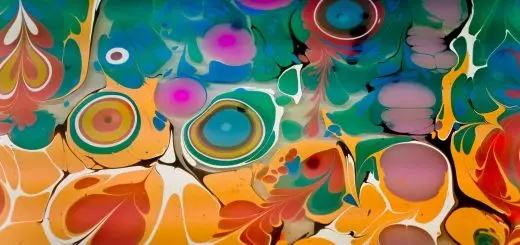Taoism and Traditional Chinese Medicine Connections

Looking for more amazing products? Check out our online store and explore our collection here! Happy shopping!
Before diving in, please note: This post is for informational purposes only. If you’d like to know more about how we approach topics, feel free to check out our friendly Disclaimer Page.
Hey there, amazing readers! 
We’re committed to delivering quality posts, and your support (even just sticking around despite the ads) means everything to us. So, bear with us, and thanks for helping us keep the good vibes rolling. Now, on to the fun stuff!
TRANSLATE BUTTON AT THE END OF THE ARTICLE
Introduction to Taoism and Traditional Chinese Medicine
Taoism and Traditional Chinese Medicine (TCM) have deep-rooted connections that have been intertwined for centuries.
Both are holistic systems that emphasize the balance and harmony of the body, mind, and spirit.
While Taoism is a philosophical and spiritual tradition, TCM is a medical practice aimed at maintaining health and treating illnesses.
The principles and philosophies of Taoism have greatly influenced the development of TCM, shaping its diagnostic methods, treatment strategies, and overall approach to health and wellness.
The ancient Chinese believed that the human body is a microcosm of the larger universe, and both Taoism and TCM seek to align the individual with the natural rhythms and energies of the world around them.
By understanding and applying the principles of Taoism, practitioners of TCM can better diagnose and treat ailments by addressing the root causes of disease rather than just the symptoms.
This holistic approach sets TCM apart from Western medicine and underscores its deep connection to Taoist philosophy.
Origins and Principles of Taoism
Taoism, also known as Daoism, originated in ancient China and is attributed to the legendary figure Laozi, who wrote the foundational text of Taoism, the Tao Te Ching.
The central principle of Taoism is the concept of the Tao, which can be translated as "the Way" or "the Path." The Tao is the underlying principle that governs the universe and embodies the natural order of things.
Taoists believe in living in harmony with the Tao by embracing simplicity, spontaneity, and non-action.
Taoism emphasizes the importance of balance and harmony in all aspects of life, including health and well-being.
Taoist practices such as meditation, qigong, and tai chi are aimed at cultivating inner peace, harmony, and vitality.
By aligning oneself with the flow of the Tao, individuals can achieve a state of balance and wholeness that promotes overall health and longevity.
Principles of Traditional Chinese Medicine
Traditional Chinese Medicine is a comprehensive system of healthcare that has been practiced in China for thousands of years.
TCM is based on the principles of Yin and Yang, the Five Elements, Qi (vital energy), and the concept of meridians (energy pathways) that flow throughout the body.
TCM views the body as a dynamic system where all parts are interconnected and in constant interaction with each other and the environment.
The fundamental principles of TCM include the belief that health is maintained when the body is in a state of balance and harmony, while illness arises from imbalances or blockages in the flow of Qi.
TCM practitioners use a combination of diagnostic techniques such as pulse diagnosis, tongue examination, and questioning to assess the overall health of an individual and determine the root causes of their symptoms.
Treatment in TCM often involves a personalized approach that may include acupuncture, herbal medicine, dietary therapy, and mind-body practices.
Yin and Yang in Taoism and TCM
The concept of Yin and Yang is central to both Taoism and TCM and represents the dualistic nature of the universe.
Yin and Yang are complementary forces that exist in everything and are in a constant state of dynamic balance.
Yin is associated with darkness, cold, and stillness, while Yang is associated with light, heat, and movement.
In the human body, Yin and Yang correspond to different organs, tissues, and physiological functions.
In Taoism, the goal is to maintain a harmonious balance between Yin and Yang within oneself to achieve optimal health and vitality.
TCM views health as the dynamic equilibrium of Yin and Yang within the body.
Imbalances in Yin and Yang can lead to disharmony and disease, so TCM treatments aim to restore balance by tonifying deficient Yin or Yang, dispersing excess Yin or Yang, or regulating the flow of Qi.
Qi and Meridians in TCM and Taoism
Qi is the vital energy that flows through the body along pathways called meridians.
In TCM, Qi is believed to be the foundation of life and the animating force behind all bodily functions.
When Qi is abundant and flowing smoothly, the body is healthy and balanced.
However, blockages or imbalances in the flow of Qi can lead to illness and disease.
In Taoism, Qi is seen as the life force that permeates the universe and connects all living beings.
By cultivating and harmonizing Qi through practices like qigong and meditation, Taoists seek to enhance their vitality, resilience, and spiritual awareness.
TCM uses acupuncture to influence the flow of Qi along the meridians and restore balance to the body’s energy system.
Acupuncture points are specific locations along the meridians where Qi can be accessed and manipulated to promote healing and wellness.
Herbal Medicine in Taoism and TCM
Herbal medicine is an essential component of both Taoism and TCM and has been used for thousands of years to treat a wide range of health conditions.
Taoist herbalism is based on the principles of Yin and Yang, the Five Elements, and the energetics of plants.
Taoist herbalists believe that plants contain the essence of the Tao and can help restore balance and harmony to the body.
In TCM, herbal medicine is prescribed based on the individual’s constitution, symptoms, and diagnosis.
Herbs are classified according to their energetic properties (such as hot, cold, damp, or dry) and are combined into formulas to address specific patterns of disharmony.
Herbal medicine in TCM is used to tonify deficiencies, dispel excesses, and regulate the flow of Qi and blood in the body.
Herbs are often taken in the form of teas, powders, pills, or tinctures and can be used alone or in combination with other TCM modalities.
Acupuncture in Traditional Chinese Medicine
Acupuncture is a cornerstone of TCM and involves the insertion of thin needles into specific points on the body to stimulate the flow of Qi and restore balance.
Acupuncture points are located along the meridians where Qi flows, and each point has specific effects on the body’s energy and physiology.
Acupuncture is used to treat a wide range of conditions, including pain, inflammation, digestive disorders, and emotional imbalances.
In Taoism, acupuncture is seen as a way to harmonize the body, mind, and spirit by balancing the flow of Qi and promoting the circulation of vital energy.
Acupuncture treatments are tailored to the individual’s unique constitution and symptoms, and may be combined with other TCM modalities such as herbal medicine, cupping, or moxibustion.
Acupuncture is a safe and effective therapy that can help restore health and well-being by addressing the root causes of disease and promoting the body’s innate healing abilities.
Dietary Therapy in Taoism and TCM
Dietary therapy is an integral part of both Taoism and TCM and is based on the principles of Yin and Yang, the Five Elements, and the energetics of food.
In Taoism, food is seen as a source of nourishment for the body, mind, and spirit, and plays a vital role in maintaining health and vitality.
Taoist dietary practices emphasize eating whole, natural foods that are in harmony with the seasons and one’s individual constitution.
In TCM, dietary therapy is used to prevent and treat illness by addressing imbalances in the body’s internal environment.
Foods are classified according to their energetic properties (such as hot, cold, damp, or dry) and are prescribed based on the individual’s patterns of disharmony.
TCM practitioners may recommend specific foods or cooking methods to tonify deficiencies, clear excesses, or regulate the flow of Qi and blood.
By following a balanced and nourishing diet, individuals can support their overall health and well-being.
Mind-Body Connection in Taoism and TCM
The mind-body connection is a fundamental concept in both Taoism and TCM and underscores the interconnectedness of the body, mind, and spirit.
Taoist practices such as meditation, qigong, and tai chi are aimed at cultivating mental clarity, emotional balance, and spiritual awareness.
By calming the mind and focusing on the present moment, individuals can reduce stress, enhance their vitality, and promote overall well-being.
In TCM, the mind-body connection is central to the diagnosis and treatment of illness.
Emotional imbalances, stress, and mental attitudes are seen as important factors in the development of disease and are taken into consideration when formulating treatment strategies.
TCM encourages mindfulness, relaxation, and stress-reduction techniques to support the body’s natural healing processes and promote holistic health.
By addressing the root causes of disease at the level of the mind and emotions, TCM can help individuals achieve greater harmony and balance in their lives.
Five Elements Theory in TCM and Taoism
The Five Elements theory is a cornerstone of both Taoism and TCM and is used to understand the relationships between the body, nature, and the cosmos.
The Five Elements—Wood, Fire, Earth, Metal, and Water—represent different aspects of the natural world and correspond to specific organs, tissues, emotions, and seasons.
The interactions between the Five Elements are believed to influence health, personality, and well-being.
In Taoism, the Five Elements are seen as symbolic representations of the cyclical nature of existence and the interplay of Yin and Yang.
Taoists use the Five Elements to understand the flow of energy in the universe and to harmonize their internal and external environments.
In TCM, the Five Elements are used to diagnose and treat patterns of disharmony in the body, such as excesses or deficiencies of Qi and blood.
By addressing imbalances between the Five Elements, TCM practitioners can restore harmony to the body and promote optimal health and vitality.
Taoist Practices for Health and Wellness
Taoist practices are designed to enhance health, longevity, and spiritual well-being by cultivating the body’s innate healing powers and harmonizing the flow of Qi.
Meditation is a central practice in Taoism that promotes mental clarity, emotional balance, and spiritual awareness.
By quieting the mind and focusing on the breath, individuals can reduce stress, enhance vitality, and connect with their inner essence.
Qigong is a form of gentle exercise that combines movement, breathwork, and meditation to cultivate Qi, balance Yin and Yang, and harmonize the body’s energy system.
Tai chi is a martial art that emphasizes slow, flowing movements, deep breathing, and mindfulness to improve balance, coordination, and relaxation.
By practicing these Taoist arts regularly, individuals can strengthen their immune system, increase their energy levels, and promote overall health and well-being.
Integrating Taoism and TCM for Holistic Healing
Integrating Taoism and TCM can provide a comprehensive approach to health and wellness that addresses the physical, mental, emotional, and spiritual aspects of the individual.
By combining the principles of Taoism with the diagnostic tools and treatment modalities of TCM, practitioners can offer a more holistic and personalized approach to healing.
By understanding the connections between the body, mind, and spirit, individuals can achieve greater balance, harmony, and vitality in their lives.
By incorporating Taoist practices such as meditation, qigong, and tai chi into their daily routines, individuals can enhance the effects of TCM treatments and support their overall health and well-being.
By aligning with the natural rhythms of the Tao and cultivating their Qi, individuals can promote healing, prevent illness, and enhance their quality of life.
Integrating Taoism and TCM offers a powerful and effective way to achieve holistic healing and optimal wellness for the body, mind, and spirit.
Conclusion
In conclusion, Taoism and Traditional Chinese Medicine share deep connections that have evolved over thousands of years.
The philosophies and practices of Taoism have greatly influenced the development of TCM, shaping its diagnostic methods, treatment strategies, and overall approach to health and wellness.
By embracing the principles of Taoism and integrating them with the holistic healing modalities of TCM, individuals can achieve greater balance, harmony, and vitality in their lives.
Whether through acupuncture, herbal medicine, dietary therapy, or mind-body practices, the integration of Taoism and TCM offers a powerful path to holistic healing and optimal well-being.
By exploring the interconnectedness of the body, mind, and spirit, individuals can unlock the secrets of health and wellness that have been passed down through the ages in these ancient traditions.

The Enlightenment Journey is a remarkable collection of writings authored by a distinguished group of experts in the fields of spirituality, new age, and esoteric knowledge.
This anthology features a diverse assembly of well-experienced authors who bring their profound insights and credible perspectives to the forefront.
Each contributor possesses a wealth of knowledge and wisdom, making them authorities in their respective domains.
Together, they offer readers a transformative journey into the realms of spiritual growth, self-discovery, and esoteric enlightenment.
The Enlightenment Journey is a testament to the collective expertise of these luminaries, providing readers with a rich tapestry of ideas and information to illuminate their spiritual path.
Our Diverse Expertise
While our primary focus is on spirituality and esotericism, we are equally passionate about exploring a wide range of other topics and niches 

To ensure we provide the most accurate and valuable insights, we collaborate with trusted experts in their respective domains 
Our blog originally focused on spirituality and metaphysics, but we’ve since expanded to cover a wide range of niches. Don’t worry—we continue to publish a lot of articles on spirituality! Frequently visit our blog to explore our diverse content and stay tuned for more insightful reads.
Hey there, amazing reader! 
Check out our store here and take a peek at some of our featured products below! Thanks for being awesome!











